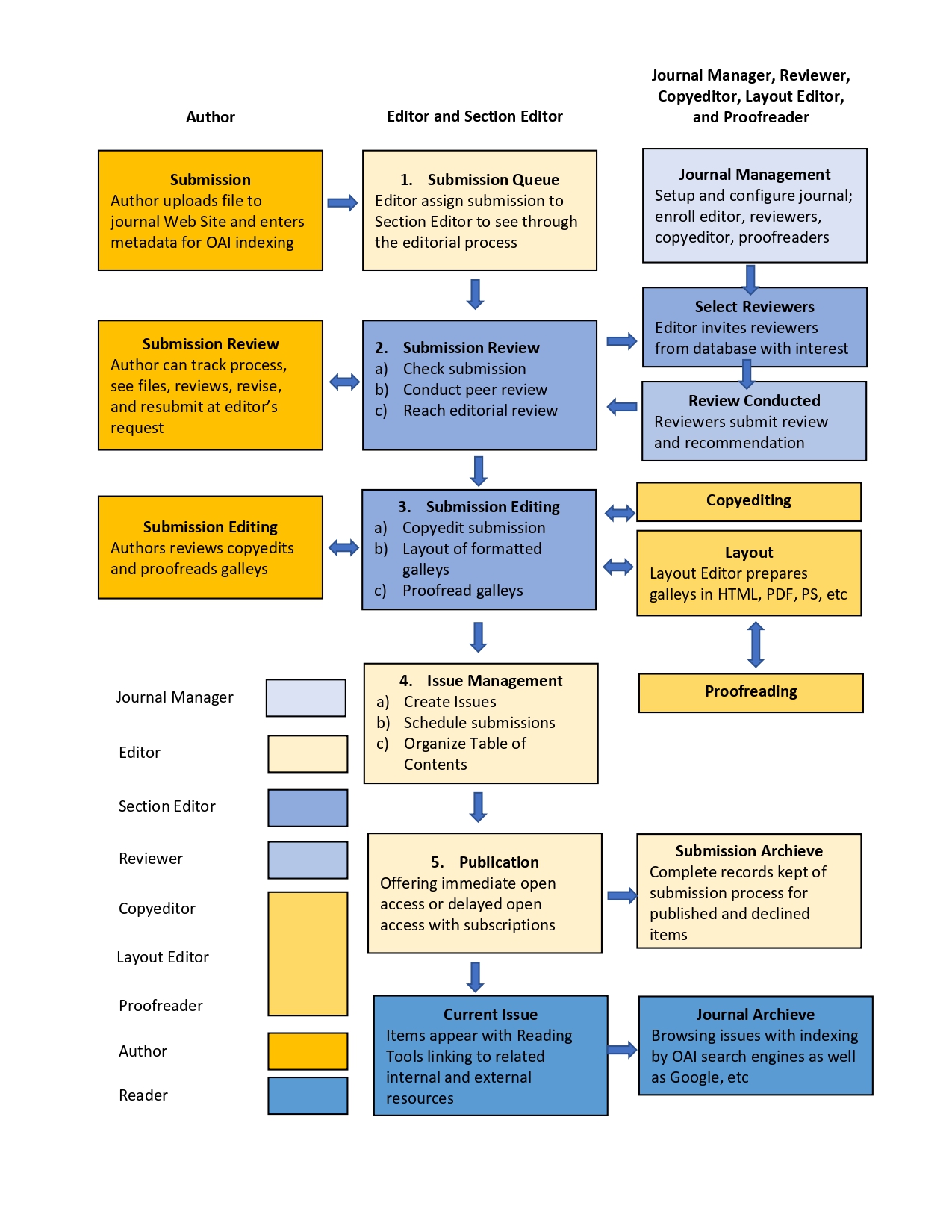Focus and Scope
Journal of Digital Innovation Studies (DIGITS Journal) is a new Open Access Journal published by the Center for Digital Innovation Studies (DIGITS), Faculty of Economics and Business, Universitas Padjadjaran, Indonesia. DIGITS Journal endeavours to deliver quality research that spans a broad spectrum of digital innovation, involving the digital process and outcome, digital technology, the context, and the interconnection between them.
Harnessing both rigour and relevance, DIGITS Journal seeks to contribute to digital innovation research to sustain the value created from the interplay of people-technology in various ecosystems. DIGITS Journal focuses on diverse aspects of sociotechnical and socioeconomics perspectives of information system and technology management that are of fundamental importance for the advancement of Indonesia and global innovation. We, therefore, undertake a variety of topics, including, but not limited to:
- Digital innovation:
- digital product innovation
- digital process innovation
- digital organizational innovation
- Digital business functions:
- digital operation
- digital marketing
- digital finance
- digital human resources
- Digital technology and innovation:
- data and process analytic
- emerging technology innovation
- UI/UX Design
- Digital strategy:
- digital transformation and strategy
- business process innovation
- digital business valuation
- digital infrastructure
- digital business intelligence
- Sustainable digital innovation:
- governance of digital innovation
- data security
- digital corporate sustainability
- digital resilience
- digital society
DIGITS Journal plans to launch its first issue in March 2022.
Section Policies
Artikel
Peer Review Process

Open Access Policy
Articles are freely available to the public without subscription with permitted reuse. For open access articles, permitted third party (re)use is defined by the follow Creative Commons user licenses:
Publication Ethics
Duties of Authors
- Reporting Standards
Authors of reports of original research should present an accurate account of the work performed as well as an objective discussion of its significance. Underlying data should be represented accurately in the paper. A paper should contain sufficient detail and references to permit others to replicate the work. Fraudulent or knowingly inaccurate statements constitute unethical behavior and are unacceptable. - Data Access and Retention
Authors may be asked to provide the raw data in connection with a paper for editorial review, and should be prepared to provide public access to such, if practicable, and should in any event be prepared to retain such data for a reasonable time after publication. - Originality and Plagiarism
Authors should ensure that they have written entirely original works, and if the authors have used the work and/or words of others this must be appropriately cited or quoted. - Multiple Publications
An author should not in general publish manuscripts describing essentially the same research in more than one journal or primary publication. Submitting the same manuscript to more than one journal concurrently constitutes unethical publishing behavior and is unacceptable. - Acknowledgement of Sources
Proper acknowledgment of the work of others must always be given. Authors should cite publications that have been influential in determining the nature of the reported work. - Authorship of the Paper
Authorship should be limited to those who have made a significant contribution to the conception, design, execution, or interpretation of the reported study. All those who have made significant contributions should be listed as co-authors. Where there are others who have participated in certain substantive aspects of the research project, they should be acknowledged or listed as contributors. - Disclosure and Conflict of Interest
All authors should disclose in their manuscript any financial or other substantive conflict of interest that might be construed to influence the results or interpretation of their manuscript. All sources of financial support for the project should be disclosed. - Fundamental Errors in Published Works
When an author discovers a significant error or inaccuracy in his/her own published work, it is the author's obligation to promptly notify the journal editor or publisher and cooperate with the editor to retract or correct the paper.
Duties of Editors
- Fair play
Manuscripts shall be evaluated solely on their intellectual merit without regard to authors’ race, gender, sexual orientation, religious belief, ethnic origin, citizenship, or political philosophy. - Confidentiality
The Editor in Chief/editors and any editorial staff must not disclose any information about a submitted manuscript to anyone other than the corresponding author, reviewers, potential reviewers, other editorial advisers, and the publisher. - Disclosure and Conflicts of Interest
Unpublished materials disclosed in a submitted manuscript must not be used by anyone who has a view of the manuscript in his or her own research without the express written consent of the author - Decision on the Publication of Articles
The Editor in Chief of Register is responsible for deciding which of the articles submitted to the journal should be published. The Editor in Chief may be guided by the policies of the journal's editorial board and subjected to such legal requirements regarding libel, copyright infringement and plagiarism. The Editor in Chief may confer with other editors or reviewers in making this decision - Review of Manuscript
The Editor in Chief should ensure that each manuscript is initially evaluated by the editor/co-editor, who may make use of appropriate software to examine the originality of the contents of the manuscript and after passing this test, manuscript is forwarded to two referees for blind peer review, and each of whom will recommend to publish the manuscript in its present form or to modify or to reject the same. The time required for each review stage is at least a month (?) after the reviewer states willingness. If the article is of very good or very poor quality, it is possible to get a decision faster - Disclosure and Conflicts of Interest
Unpublished materials disclosed in a submitted manuscript must not be used by anyone who has a view of the manuscript in his or her own research without the express written consent of the author
Duties of Reviewers
- Promptness
In case, any reviewer feels that it is not possible for him/her to complete review of manuscript within stipulated time then the same must be communicated to the editor, so that the same could be sent to any other reviewer. - Confidentiality
Information regarding manuscripts submitted by authors should be kept confidential and be treated as privileged information. - Standard of Objectivity
Reviews should be conducted objectively. There shall be no personal criticism of the author. Reviewers should express their views clearly with supporting arguments. - Acknowledgement of Sources
Reviewers should identify relevant published work that has not been cited by the authors. Any statement that had been previously reported elsewhere should be accompanied by the relevant citation. A reviewer should also call to the Editor in Chief's attention any substantial similarity or overlap between the manuscript under consideration and any other published paper of which they have personal knowledge. - Conflict of Interest
Reviewers should not review manuscripts in which they have conflicts of interest resulting from competitive, collaborative, or other relationships or connections with any of the authors, companies, or institutions connected to the papers


